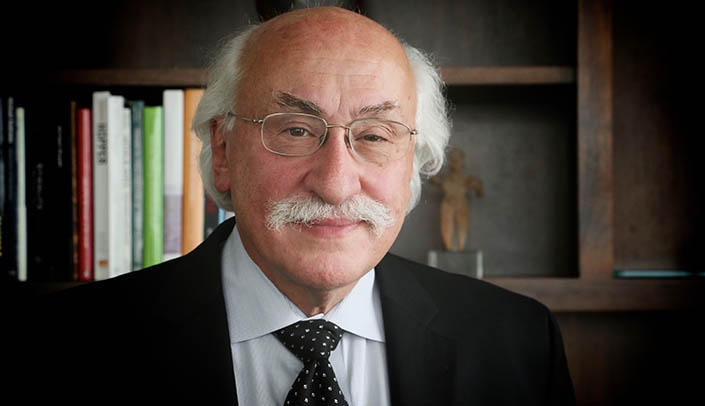The Buffett Early Childhood Institute at the University of Nebraska last week released a report detailing progress and key accomplishments during its first five years. Ongoing efforts to close the achievement gap and to strengthen the early childhood workforce constitute the critical areas of work.
UNMC-Buffett Institute collaborations
- UNMC community chair: David Dzewaltowski, Ph.D., Community Chair in Activity, Nutrition, and Obesity Prevention
- Interdisciplinary Center for Program Evaluation of the Munroe-Meyer Institute is one of the evaluators of the Superintendents’ Early Childhood Plan: The research and evaluation unit of the Buffett Early Childhood Institute will manage the evaluation in collaboration with the Nebraska Center for Research on Children, Youth, Families and Schools at the University of Nebraska-Lincoln (UNL) and the Interdisciplinary Center for Program Evaluation of the Munroe-Meyer Institute at the University of Nebraska Medical Center (UNMC). UNL will lead the birth⎼age 3 component and will contribute to the overall design of the evaluation and the development of the database. UNMC will lead the PreK ⎼ third grade component of the evaluation. Dr. Iheoma Iruka, director of research and evaluation at the Buffett Early Childhood Institute, will provide overall guidance for the evaluation.
- Faculty member Melissa Tibbits spoke at the 2017 Parenting Matters: A National Symposium.
- Leadership and faculty served on the advisory committee for the Buffett Institute/Gallup Survey on Early Care and Education in Nebraska.
The Buffett Institute began operations in June 2013 and set itself on a fast trajectory under the leadership of Samuel J. Meisels, Ed.D., who serves as the Institute’s founding executive director and is a nationally recognized leader in the field of early education. Shaped by the shared vision of the University of Nebraska and philanthropist Susie Buffett, the institute focuses on early childhood development and education, especially for children in greatest need.
When the institute got under way, approximately 40 percent of Nebraska’s children from birth through age 5 — in both urban and rural areas — were considered at risk for failing in school.
The institute set out to change that statistic and the lives of young children, birth through third grade. Working on all four campuses of the University of Nebraska and in the areas of research, practice, policy, and outreach, Dr. Meisels and his leadership team established two signature programs: the Achievement Gap Challenge and the Early Childhood Workforce Development Program.
“From the moment I came to Nebraska, I had one big idea: to make Nebraska the best state in the nation to be a baby,” Dr. Meisels said. “At the five-year mark, we are well on our way to meeting our goals and are deeply grateful for the partnership and collaboration of so many in Nebraska committed to improving the lives of young children and their families and the communities in which they live. We are also incredibly proud to be part of the University of Nebraska, whose unique commitment to early childhood development is unrivaled in America today.”
“The Buffett Early Childhood Institute is an integral part of the University of Nebraska and represents our commitment to ensuring that all children have the same opportunity to develop, learn and thrive,” said Hank Bounds, Ph.D., president of the University of Nebraska. “The institute is creating a new model for how public higher education can be engaged in the lives of young children. The implications for quality of life, workforce development and economic well-being are significant.
“In the short time since the institute was created, and under the leadership of Sam Meisels and his team, we have already made remarkable progress toward our goals,” Dr. Bounds said. “I’m excited about the opportunity to continue to work with our partners to build on the institute’s early success and transform the lives of children and families in Nebraska and beyond.”
In releasing the report, Dr. Meisels said that the institute’s work has just begun. “We have set the course for this extraordinary institute through the partnerships we are forming, the work we are doing, and the knowledge we are developing. What we have started in Nebraska has relevance for every other state in the nation.”
